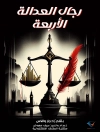The Collected Works of Daniel Defoe assembles the multifaceted writings of one of the seminal figures of early 18th-century literature. This comprehensive anthology features Defoe’s most renowned works, including the groundbreaking novel Robinson Crusoe, alongside pamphlets, essays, and other narrative forms that encapsulate the anxieties and aspirations of the emerging modern world. Defoe’s distinctive prose style blends realism with an adventurous spirit, reflecting the complexities of the age of Enlightenment while pioneering the modern novel form. His narratives often explore themes of individualism, economic enterprise, and societal norms, presenting a tapestry of human experience that continues to captivate contemporary readers. Daniel Defoe (circa 1660-1731) was not only a novelist but also a journalist, merchant, and spy whose varied life experiences shaped his multifarious literary output. Defoe’s own struggles with poverty, political upheaval, and personal loss informed his depiction of resilience and survival in his characters. His keen observations of early capitalist society and the human condition resonate throughout his works, making them rich texts for both literary and historical analysis. For readers seeking an immersive journey through 18th-century thought and a deep dive into the human spirit, The Collected Works of Daniel Defoe is highly recommended. This anthology not only serves as a testament to Defoe’s literary ingenuity but also as an essential resource for understanding the evolution of English literature and early modernity.
Tentang Penulis
Daniel Defoe (c. 1660 – 24 April 1731) was an English writer, journalist, and spy, now most famously known for his novel ‘Robinson Crusoe’ (1719). Born as Daniel Foe, he later added the more genteel ‘De’ to his surname. Initially a merchant, Defoe diversified his career with activities ranging from political pamphleteering to trading wine. His life was marked by a keen interest in politics, religion, and social issues. After facing bankruptcy and debt, Defoe turned to writing to secure his livelihood. His prodigious output included more than 300 works of all kinds, reflecting his array of interests and impressive knowledge. Defoe’s literary style is distinguished by his vivid journalism, his keen eye for detail, and his mastery of the narrative form. His works span from satirical poems, informative essays, to instructional manuals, though he is best known for his contributions to the development of the English novel. ‘Robinson Crusoe’ is often cited as marking the beginning of realistic fiction as a literary genre. Defoe’s other acclaimed novels include ‘Moll Flanders’ (1722), ‘A Journal of the Plague Year’ (1722), and ‘Colonel Jack’ (1722), all of which display his innovative approach to fiction that combines realism, adventure, and social critique. Daniel Defoe’s work offers a window into the tumultuous social landscape of early 18th-century England and his novels remain a cornerstone in the canon of English literature.












